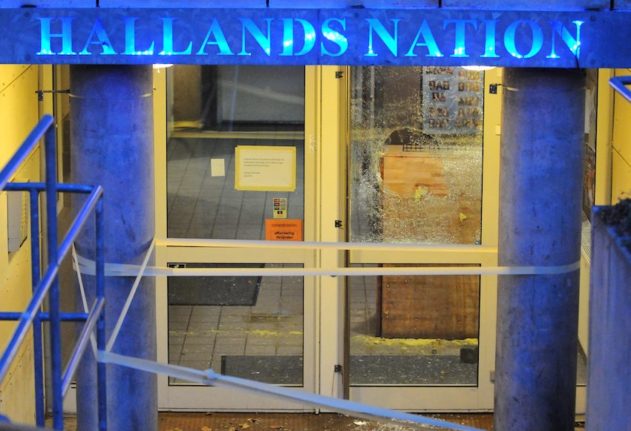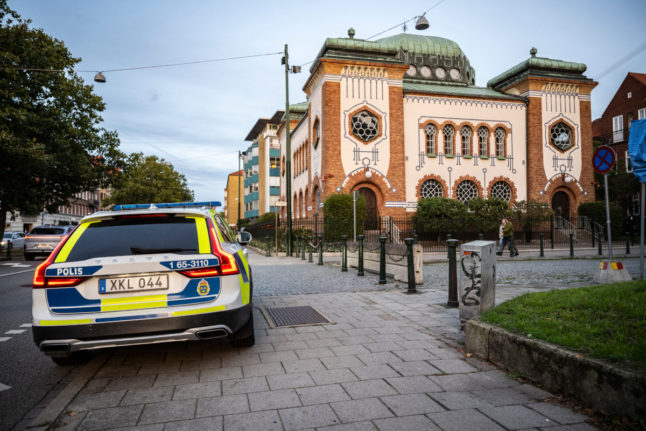Sweden is strange.
On the one hand, it has been a fairly easy country to move to, especially for higher education. It took in thousands of Syrian refugees during the height of the refugee crisis – several times more than fellow Scandinavian countries Norway and Denmark. (Of course, Sweden’s immigration policies are expected to change significantly under the new government.)
But on the other hand, conversations in Sweden about race – race as an undeniable reality that shapes peoples’ experiences in a fairly homogenous society – are at worst ignorant.
Take, for example, a slave auction held by Hallands Nation, a student society, at Lund University in 2011. Three people in black face, ropes tied around their necks, were led into a party by a white “slave trader”. Over the course of the evening’s event, the “slaves” were auctioned off.
READ ALSO:
- Sweden is decades behind on racism and diversity
- The response in Sweden is just incredibly racist and it proves my point
- No such thing as race: why Sweden’s colour-blind approach is failing
I learned about this slave auction at an exhibition about hate crimes at Malmö Museer, which I attended as part of my coursework for a class on Media and Diversity at Lund University. As I was staring aghast at a board about this slave auction, which took place a mere decade ago, a classmate nudged me. He gestured toward a police officer’s cap in a glass case. This cap was positioned not far from portraits of men and women who had been victims of hate crimes, based on their racial, religious, or gender identities. In this exhibition, organised in partnership with the police, the police positioned themselves as victims of hate crimes as well.
I completed my undergraduate studies as an international student in the United States, which perhaps means I’m more aware of the horrors of chattel slavery. But this slave auction happened in 2011, at a point in the internet era when it would have been easy enough to Google “slave auction good idea?”
This museum trip came on the heels of my first brush with discourse on race in Sweden. Picture this: my first date since moving to Sweden a month earlier, with a Swedish guy who seemed nice enough, and who was aware that I am not a blonde-haired, blue-eyed Swede. We met for fika at a cosy café in Lund. After the usual hellos and how-are-yous, he pulled out the topic that had clearly been on his mind for a while: “When is it okay for non-black people to say the n-word?” He would hate this article for the way I’ve written out the n-word here, because he insisted that it’s important it be spelled out in full, so he can know whether the author’s intent was for it to end in -er or -ah. Why? I’m not sure, his explanation went over my head.
He argued passionately for the rights of the elderly to use the n-word, including in reference to their caretakers. What about the rights of those caretakers to a safe, non-hostile workplace? Again, his explanation for why racist slurs uttered by old people should never be corrected went over my head – something about them being old and set in their ways, and their racism being essentially harmless.
He laughed at Black Lives Matter protests in the United States, and argued that black Americans should just arm themselves if they don’t feel safe in their streets. Then he moved on from contemporary events and to historical ones. While born and raised in Sweden, he has one Belgian parent. And so, this guy cracked jokes about King Leopold “mowing his lawn” as he enacted the unimaginable atrocities that resulted in millions of deaths in the Congo when it was a Belgian colony. I could not get away from this date fast enough.
Anyway, I didn’t get any better at filtering out people after this experience. Another guy I went out with several times let his nationalism fly on our last date, when he told me confidently, “Sweden is the best country in the world.” This was the theme of a two-hour lecture he delivered as I sipped my beer and tried to think of the best way to end the ordeal. Don’t get me wrong – I do love living in Sweden. But this grew old fast. He explained that although Sweden’s zero tolerance drug policy is not a successful model, Sweden is still trying – which makes it the best country in the world. He told me that although the Systembolaget system is irritating and inconvenient, it shows how Sweden tried to curb rampant alcoholism – which makes it the best country in the world. Fair enough.
And then it got really interesting, when he decided to argue that racism in Sweden is real – but that because it is subtle, it is also the best racism in the world. This is the moment that my brain truly broke, because how do you argue with that?
It’s not all bad though. As I mentioned earlier, I did my bachelors in the United States, where the topic of Palestine and Israel is an extremely fraught one, including on university campuses. I plan to write my master’s thesis on a topic that incorporates the subject of Palestine, something that I would never have dreamed of broaching if I were still in the United States. And so, in many ways, while conversations around race and identity seem to be lagging behind in Sweden, in others, I am surprised by the opportunities to explore topics that are taboo elsewhere.
That said, come on. Racism, no matter how “subtle,” is never benign.
Last month, David Crouch wrote for The Local about the failures of Sweden’s race-blind approach to collecting data about its population. Under a system of race blindness, racism as a form of systemic and structural oppression can never be dismantled because it is never acknowledged. And consequently, you, too, might find yourself at a party that turns into a slave auction.
I hope you won’t.



 Please whitelist us to continue reading.
Please whitelist us to continue reading.
Thank you Shandana for a thoughtful article. I often struggle to communicate the importance of some of these issues to my non-American friends. Some understand, others often tell me that “Americans are always so unecessarily focused on race, we don’t have your problems here”. I think the subtlety of Swedish racisim and the lack of complex language for it really does damage in the same way that unintentional racism among white progressives in the United States does. People can say, “I’m not racist, I voted for Obama!”/”We’re not racist we brought in people from Syria!” ~ Wonderful, great job~ but you can’t use this as a free ticket to ignore history, everyone’s role in instiutionalized racism, or to feign being an activist. I am proud of Sweden for so many things and I have faith this nation may yet come together to address these issues in a good way.